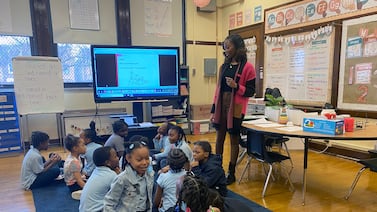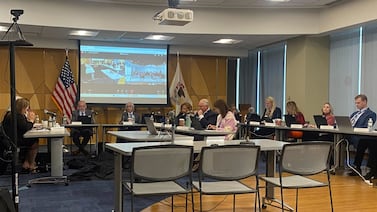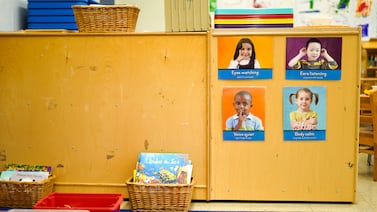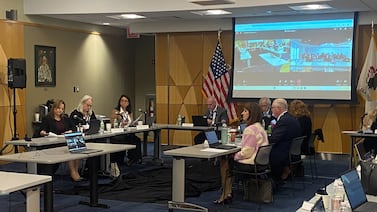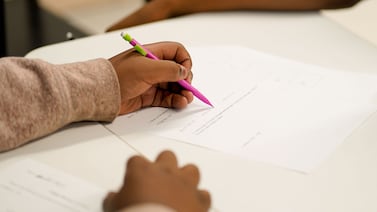The Minority Teachers of Illinois Scholarship was a 33-year-old initiative funded by the state to diversify the teacher workforce. After the program was challenged in 2024, lawmakers decided to erase all language related to race and ethnicity and change eligibility requirements.
Sharon Toi Overton fell in love with music and acting at a young age. Now, she is bringing her passion to students at Ray Graham Training Center. This year, her students will perform in a production of ‘The Wiz.’
The bill signed by JB Pritzker bars public colleges and universities and child care centers licensed by the state from disclosing certain individuals’ immigration and citizenship status.
State Superintendent Tony Sanders says the state board will provide more time for feedback on changes to the accountability system that labels schools based on student metrics. The new timeline includes more public feedback opportunities and delays a final vote by the state board to April.
Some Chicago Head Start providers are expecting funding grants to be renewed by Dec. 1, when their grant cycle is supposed to start. But they have yet to hear about the status of funding.
Chicago Board of Education members held a rally outside of Austin High School to urge city officials to vote in favor of Mayor Brandon Johnson’s $16.6 billion budget proposal. Members warn there could be staffing cuts if the plan is voted down.
The state board’s current proposal would drop the 9th Grade On-Track metric from the calculation used to label schools based on performance. The changes have raised concerns for board members and local advocates.
Illinois education officials summarized public input gathered at budget hearings in September and October. Transportation and increasing the state’s evidence-based funding formula by at least $350 million were the most frequent budget requests made by the public.
The Illinois State Board of Education is holding public hearings to get input on the budget for the 2026-27 school year.
Illinois students’ math scores have remained lower than pre-pandemic scores. To fix that, the State Board of Education is putting together a numeracy plan to change how math is taught in schools.


